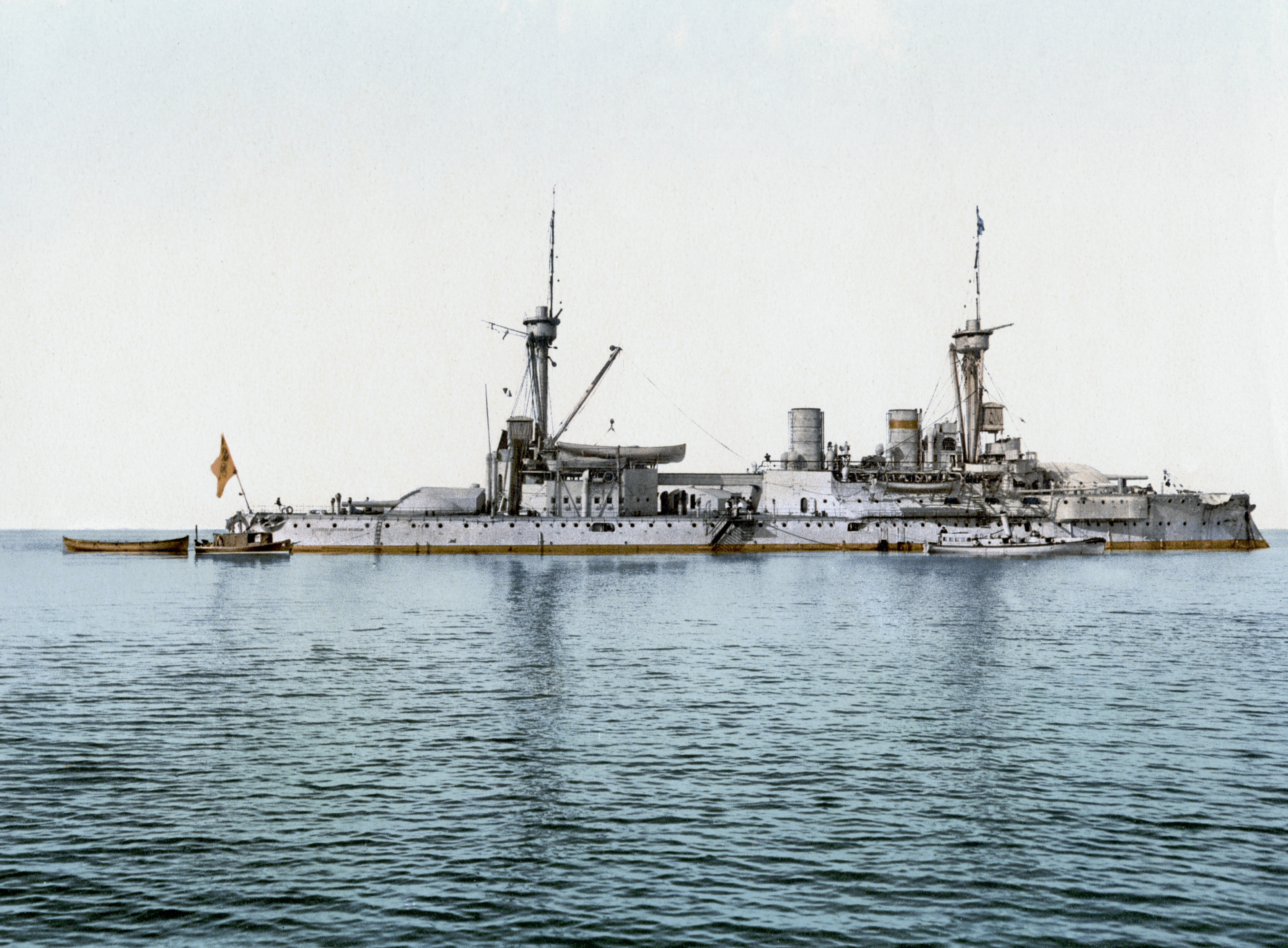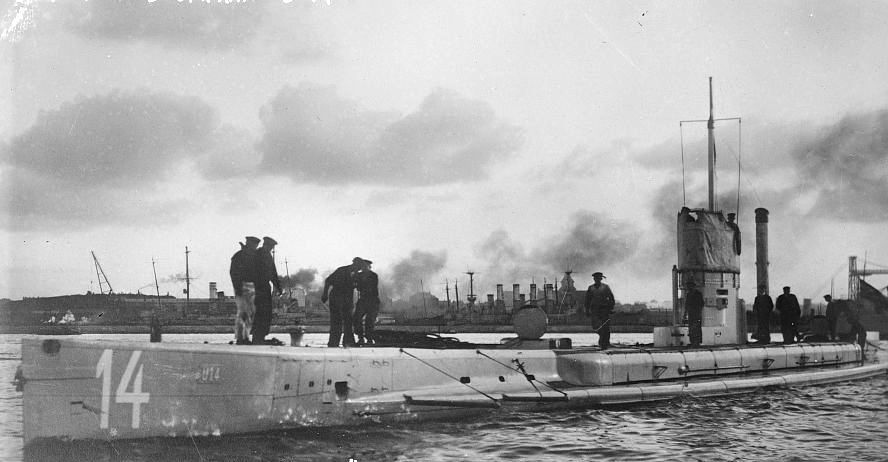|
August Von Thomsen
August von Thomsen (6 August 1846 – 26 September 1920) was an Admiral of the German Imperial Navy. He was the son of Adolf Theodor Thomsen (a Prussian politician) and Catharina Tönnies. Ferdinand Tönnies: Friese und Weltbürger : eine Biografie by Uwe Carstens; Books on Demand, 2005ISBN 3833429666, 9783833429668N. 372 pages. p. 321. In 1898 - 1903 he was senior admiral (commander) at the North Sea Naval Station (Marinestation der Nordsee) at Wilhelmshaven.By order of the Kaiser: Otto von Diederichs and the rise of the Imperial German Navy, 1865-1902 by Terrell D. Gottschall; Institute Press, 2003, 337 pages His fame as "the father of German naval artillery" dates from 1885 when he was appointed chief gunner. He set up the first long range experiments on the ironclad in October 1885. In September 1894 he took part in the fall maneuvers of the fleet as commander of the Third Squadron with the sail frigates (flagship), , , and . In the late 1890s, at a temperance meeting ... [...More Info...] [...Related Items...] OR: [Wikipedia] [Google] [Baidu] |
Admiral (Germany)
Admiral, short Adm, (german: Admiral) is the most senior flag officer rank in the German Navy. It is equivalent to General in the German Army or German Air Force. In the Central Medical Services there is no equivalent. In the German Navy ''Admiral'' is, as in many navies, a four-star rank with a NATO code of OF-9. There is currently one admiral in the German Navy, Admiral Manfred Nielson, serving as Deputy Supreme Allied Commander Transformation in Norfolk, Virginia. However, in other German speaking naval forces, e.g. Imperial German Navy, Reichsmarine, Kriegsmarine, Volksmarine, and the Austro-Hungarian K.u.K. Kriegsmarine, Admiral was an OF-8 three-star flag officer rank. Address The official manner of formal addressing of military people with the rank ''Admiral'' (OF-9) is "Herr/Frau Admiral". However, as to German naval traditions the addressing in seamen's language of military people with any ''flag officer rank'' (OF-6 to OF-9) is "Herr/Frau Admiral". In the Imp ... [...More Info...] [...Related Items...] OR: [Wikipedia] [Google] [Baidu] |
Franz Von Hipper
Franz Ritter von Hipper (13 September 1863 – 25 May 1932) was an admiral in the German Imperial Navy (''Kaiserliche Marine''). Franz von Hipper joined the German Navy in 1881 as an officer cadet. He commanded several torpedo boat units and served as watch officer aboard several warships, as well as Kaiser Wilhelm II's yacht . Hipper commanded several cruisers in the reconnaissance forces before being appointed commander of the I Scouting Group in October 1913. He is most famous for commanding the German battlecruisers of the I Scouting Group during World War I, particularly at the Battle of Jutland on 31 May – 1 June 1916. During the war, Hipper led the German battlecruisers on several raids of the English coast, for which he was vilified in the English press as a "baby killer". His squadron clashed with the British battlecruiser squadron at the Battle of Dogger Bank in January 1915, where the armored cruiser was lost. At the Battle of Jutland, Hipper's flagship ... [...More Info...] [...Related Items...] OR: [Wikipedia] [Google] [Baidu] |
Unrestricted Submarine Warfare
Unrestricted submarine warfare is a type of naval warfare in which submarines sink merchant ships such as freighters and tankers without warning, as opposed to attacks per prize rules (also known as "cruiser rules") that call for warships to search merchantmen and place crews in "a place of safety" (for which lifeboats do not qualify, except under particular circumstances) before sinking them, unless the ship shows "persistent refusal to stop ... or active resistance to visit or search". To follow the rules a submarine must surface, defeating the purpose of submarines and putting itself in danger of attack. History Limitations on warfare at sea date back to the 1899 Hague Convention. During the First World War, the United Kingdom introduced Q-ships with concealed deck guns and many armed merchantmen, leading Germany to ignore the prize rules. In the most dramatic episode they sank in 1915 in a few minutes because she was carrying war munitions. The U.S. demanded it stop, and ... [...More Info...] [...Related Items...] OR: [Wikipedia] [Google] [Baidu] |
United Kingdom
The United Kingdom of Great Britain and Northern Ireland, commonly known as the United Kingdom (UK) or Britain, is a country in Europe, off the north-western coast of the continental mainland. It comprises England, Scotland, Wales and Northern Ireland. The United Kingdom includes the island of Great Britain, the north-eastern part of the island of Ireland, and many smaller islands within the British Isles. Northern Ireland shares a land border with the Republic of Ireland; otherwise, the United Kingdom is surrounded by the Atlantic Ocean, the North Sea, the English Channel, the Celtic Sea and the Irish Sea. The total area of the United Kingdom is , with an estimated 2020 population of more than 67 million people. The United Kingdom has evolved from a series of annexations, unions and separations of constituent countries over several hundred years. The Treaty of Union between the Kingdom of England (which included Wales, annexed in 1542) and the Kingdom of Scotland in 170 ... [...More Info...] [...Related Items...] OR: [Wikipedia] [Google] [Baidu] |
Theobald Von Bethmann Hollweg
Theobald Theodor Friedrich Alfred von Bethmann Hollweg (29 November 1856 – 1 January 1921) was a German politician who was the chancellor of the German Empire from 1909 to 1917. He oversaw the German entry into World War I. According to biographer Konrad H. Jarausch, a primary concern for Bethmann in July 1914 was the steady growth of Russian power, and the growing closeness of the British and French military collaboration. Under these circumstances he decided to run what he considered a calculated risk to back Austria-Hungary in a local war against Serbia, while risking a major war with Russia. He calculated that France would not support Russia. This calculation proved to be mistaken when Russia decided on general mobilization. The German army saw an opportunity to use the Schlieffen Plan for a quick victory against a poorly prepared France. By rushing through Belgium, however, Germany expanded the war to include the United Kingdom. Bethmann Hollweg thus failed to keep France ... [...More Info...] [...Related Items...] OR: [Wikipedia] [Google] [Baidu] |
World War I
World War I (28 July 1914 11 November 1918), often abbreviated as WWI, was one of the deadliest global conflicts in history. Belligerents included much of Europe, the Russian Empire, the United States, and the Ottoman Empire, with fighting occurring throughout Europe, the Middle East, Africa, the Pacific, and parts of Asia. An estimated 9 million soldiers were killed in combat, plus another 23 million wounded, while 5 million civilians died as a result of military action, hunger, and disease. Millions more died in genocides within the Ottoman Empire and in the 1918 influenza pandemic, which was exacerbated by the movement of combatants during the war. Prior to 1914, the European great powers were divided between the Triple Entente (comprising France, Russia, and Britain) and the Triple Alliance (containing Germany, Austria-Hungary, and Italy). Tensions in the Balkans came to a head on 28 June 1914, following the assassination of Archduke Franz Ferdin ... [...More Info...] [...Related Items...] OR: [Wikipedia] [Google] [Baidu] |
Navy League (Germany)
The Navy League or Fleet Association (german: Deutscher Flottenverein) in Imperial Germany was an interest group formed on April 30, 1898 on initiative of Admiral Alfred von Tirpitz through the German Imperial Naval Office (''Reichsmarineamt'') which he headed (1897–1916) to support the expansion of the Imperial German Navy ''(Kaiserliche Marine)''. Specifically it was intended to develop popular pressure on the German parliament ( Reichstag) to approve the Fleet Acts of 1898 and 1900, and the attendant expenses. Background The unification of Germany under Prussian leadership in 1871 was the defining point for the desire of German nationalists to have a great, world class navy. The newly created emperor, Wilhelm I, as king of Prussia, was head of state of the strongest state forming part of the new empire. His Prussian Navy had become the navy of the North German Confederation in 1867, and now became the Imperial German Navy. The Prussian Navy and that of the North German Conf ... [...More Info...] [...Related Items...] OR: [Wikipedia] [Google] [Baidu] |
Berlin
Berlin ( , ) is the capital and largest city of Germany by both area and population. Its 3.7 million inhabitants make it the European Union's most populous city, according to population within city limits. One of Germany's sixteen constituent states, Berlin is surrounded by the State of Brandenburg and contiguous with Potsdam, Brandenburg's capital. Berlin's urban area, which has a population of around 4.5 million, is the second most populous urban area in Germany after the Ruhr. The Berlin-Brandenburg capital region has around 6.2 million inhabitants and is Germany's third-largest metropolitan region after the Rhine-Ruhr and Rhine-Main regions. Berlin straddles the banks of the Spree, which flows into the Havel (a tributary of the Elbe) in the western borough of Spandau. Among the city's main topographical features are the many lakes in the western and southeastern boroughs formed by the Spree, Havel and Dahme, the largest of which is Lake Müggelsee. Due to its l ... [...More Info...] [...Related Items...] OR: [Wikipedia] [Google] [Baidu] |
German Imperial Naval Academy 1872-1918
The German Imperial Naval Academy (''Marineakademie'') at Kiel, Germany, was the higher education institution of the Imperial German Navy, ''Kaiserliche Marine'', where naval officers were prepared for service in the higher levels of command, from 1872 until 1910. The Naval Academy was founded in 1872 by the Chief of the Imperial Admiralty, Lieutenant General Albrecht von Stosch, as a graduate school to prepare naval officers selected for higher duties in the Imperial Navy. He took as a model the Prussian Military Academy, which trained general staff officers for the Prussian army. The curriculum consisted of navy subjects such as naval history and general education courses. In addition, course participants learned two modern foreign languages. Initially the training lasted for three years; beginning in 1883 it was shortened to two years. The Naval Academy was the training command of the Imperial Navy. From 1888 the Naval Academy was in the same building as the undergraduate ... [...More Info...] [...Related Items...] OR: [Wikipedia] [Google] [Baidu] |
Otto Von Diederichs
Ernst Otto von Diederichs (7 September 1843 – 8 March 1918) was an Admiral of the Imperial German Navy (''Kaiserliche Marine''), serving in the Prussian Navy and the North German Federal Navy. Early life Diederichs was born 7 September 1843 in Minden, Westphalia, Kingdom of Prussia (now in North Rhine-Westphalia, Germany). He entered the Prussian naval officer candidate program along a circuitous route, with an incomplete secondary education, a short stint as a Prussian army cadet and service in the merchant marine. After Naval School graduation at Kiel and Atlantic training voyages on the Prussian sail frigate SMS ''Niobe'', he was commissioned ''Unterleutnant zur See'' ieutenant JGin 1867. He served a brief tour aboard the royal yacht ''Grille''. During the Franco-Prussian War of 1870-1871 he commanded the coastal gunboat SMS ''Natter''. Although a French fleet maneuvered in the North Sea where ''Natter'' was deployed, "the French battle plan had little impact on Diederich ... [...More Info...] [...Related Items...] OR: [Wikipedia] [Google] [Baidu] |
German Imperial Admiralty Staff
The German Imperial Admiralty Staff (german: Admiralstab) was one of four Command (military formation), command agencies for the administration of the Imperial German Navy from 1899 to 1918. While the German Emperor Wilhelm II, German Emperor, Wilhelm II as commander-in-chief exercised supreme operational command and control of the naval forces, the military staff was split into the Admiralty, the German Imperial Naval Office, Naval Office, the German Imperial Naval Cabinet, Naval Cabinet, and the Generalinspekteur der Marine, Inspector-General. The command structure had a negative impact on German naval warfare in World War I, as a Seekriegsleitung, professional head of the Imperial Navy, similar to the First Sea Lord, was not established until August 1918. After the war and the German Revolution of 1918–19, the Admiralty Staff became subordinate to the Naval Office and was finally disestablished by order of the President of Germany (1919–1945), German President. History Aft ... [...More Info...] [...Related Items...] OR: [Wikipedia] [Google] [Baidu] |
Kiel
Kiel () is the capital and most populous city in the northern Germany, German state of Schleswig-Holstein, with a population of 246,243 (2021). Kiel lies approximately north of Hamburg. Due to its geographic location in the southeast of the Jutland peninsula on the southwestern shore of the Baltic Sea, Kiel has become one of Germany's major maritime centres, known for a variety of international sailing events, including the annual Kiel Week, which is the biggest sailing event in the world. Kiel is also known for the Kiel mutiny, Kiel Mutiny, when sailors refused to board their vessels in protest against Germany's further participation in World War I, resulting in the abdication of the Wilhelm II, German Emperor, Kaiser and the formation of the Weimar Republic. The Olympic sailing competitions of the 1936 Summer Olympics, 1936 and the 1972 Summer Olympics#Venues, 1972 Summer Olympics were held in the Bay of Kiel. Kiel has also been one of the traditional homes of the German Nav ... [...More Info...] [...Related Items...] OR: [Wikipedia] [Google] [Baidu] |



.jpg)




